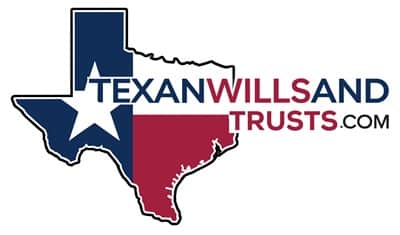Wills and Trusts
Understanding NFA Trusts: A Historical and Practical Review
A Brief History of NFA Legislation
The regulation of firearms in the United States has evolved significantly over the past century, with key legislation shaping the landscape of gun ownership and control. One of the most influential laws in this regard is the National Firearms Act (NFA) of 1934.
The National Firearms Act of 1934
Enacted during the era of Prohibition, the NFA responded to the increasing violence associated with organized crime. The Act imposed stringent regulations on certain types of firearms and devices, including machine guns, short-barreled rifles (SBRs), short-barreled shotguns (SBSs), silencers (suppressors), and destructive devices (e.g., grenades). The NFA introduced a mandatory registration system for these items and levied a $200 tax on their manufacture and transfer, a substantial sum at the time.
The Gun Control Act of 1968
The Gun Control Act (GCA) of 1968 further refined the regulatory framework established by the NFA. This Act expanded the definition of prohibited persons and regulated interstate firearms transactions, aiming to curtail the illegal flow of firearms. The GCA’s primary objective was to enhance the federal government’s ability to prevent firearms from falling into the wrong hands.
The Firearm Owners’ Protection Act of 1986
In 1986, the Firearm Owners’ Protection Act (FOPA) introduced provisions affecting NFA items. One of the most notable aspects was the ban on civilian ownership of new machine guns manufactured after May 19, 1986. This effectively froze the supply of machine guns available to civilians, making existing registered items more valuable.
The NFA Today
In recent years, advances in technology and shifts in public sentiment have led to renewed debates on the regulation of suppressors and other NFA items. Despite these changes, the core principles of the NFA remain largely intact, continuing to govern the manufacture, transfer, and possession of certain regulated firearms and devices.
Individual Ownership vs. Gun Trust Ownership of NFA Items
When it comes to owning NFA-regulated items, individuals have two primary options: individual ownership and ownership through a gun trust. Each approach has its own set of advantages and disadvantages.
Individual Ownership
Pros:
- Simplicity: The process for individual ownership is straightforward. The owner undergoes a background check, submits fingerprints and photographs, and registers the item directly in their name.
Cons:
- Transfer Restrictions: Transferring the firearm upon the owner’s death can be complicated and can only be done after their estate has been through probate. Similar to a regular Revocable Living Trust, assets in a gun trust can be managed and passed immediately, without waiting for court approval.
- Limited Accessibility: Only the registered owner can possess and use the firearm. Other family members or friends cannot legally use the item unless the owner is present.
- Unlawful Possession at Death: Individual ownership can be problematic when the owner passes away. Nobody has authority to possess the NFA item until an Executor or Administrator is approved by a probate court. Naming an Executor does not make someone an Executor until the court process is complete. Even the fastest courts in Texas take a few months for this process to complete.
Gun Trust Ownership
Pros:
- Flexibility: A gun trust allows multiple trustees to legally possess and use the NFA items. This means family members or close friends named in the trust can use the items without the primary owner being present.
- Estate Planning: A trust simplifies the transfer of NFA items upon the owner’s death. The trust continues to exist, and the items can be transferred to beneficiaries without delay.
- Privacy: A gun trust provides a degree of privacy, as firearms in trust avoid probate, unlike individual registration, which requires a public probate to process transfer after death.
Cons:
- Cost: Gun Trusts have a price, but Texan Wills and Trusts offers a high-quality gun trust at one of the lowest price points around. In our research, we found the only cheaper options are provided for purchases through specific vendors. Our Gun Trust works for any vendor you choose, for as many transactions as you like.
- Trustee Responsibility: Trustees must be carefully chosen and educated about their responsibilities and legal obligations to avoid inadvertent violations of NFA regulations.
Conclusion
Choosing between individual ownership and a gun trust for NFA items depends on various factors, including preferences for control, accessibility, and estate planning. Individual ownership offers simplicity while a gun trust provides flexibility, privacy, and a streamlined process for transferring NFA items to heirs.
Understanding the historical context and the pros and cons of each ownership method can help NFA item owners make informed decisions that align with their personal and legal needs. Whether choosing individual ownership or a gun trust, compliance with NFA regulations is crucial to ensure the lawful and responsible possession of these regulated firearms and devices.
Disclaimer:
The information provided in this article may include legal or tax information, but it does not constitute legal or tax advice and should not be construed as such.
